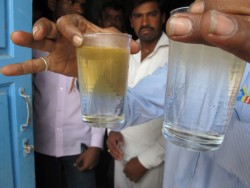The discussions in both state-level workshops in India discussed in this report revealed that the biggest gains from an integrated sustainability solution for the smart city-smart village linkage would be to address the challenge of youth unemployment in both rural and informal urban communities. The introduction of disruptive technologies that generate the opportunity for rural youth to learn new skills—installing and maintaining rural energy systems—has the potential to generate additional jobs for this age group. The scaling-up of solar energy-related youth skills might become an important driver to regenerate India’s demographic divide. The promise of renewable energy, particularly solar energy, could also be the crucial policy variable for reducing poverty. Taking the case of horticulture, for example, it was agreed that renewable energy might allow a new pattern of land-usage: using solar energy for high-end drying and packaging activities, a diversification of rural income-generating activities could both increase rural income and increase the food production of the country.







